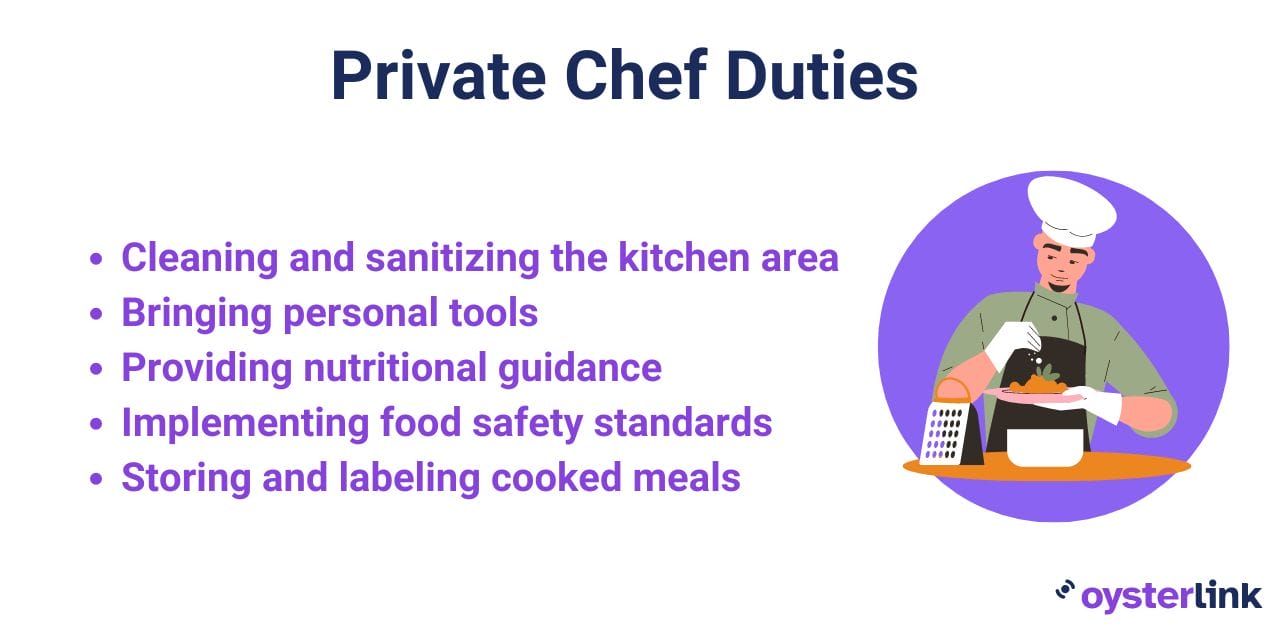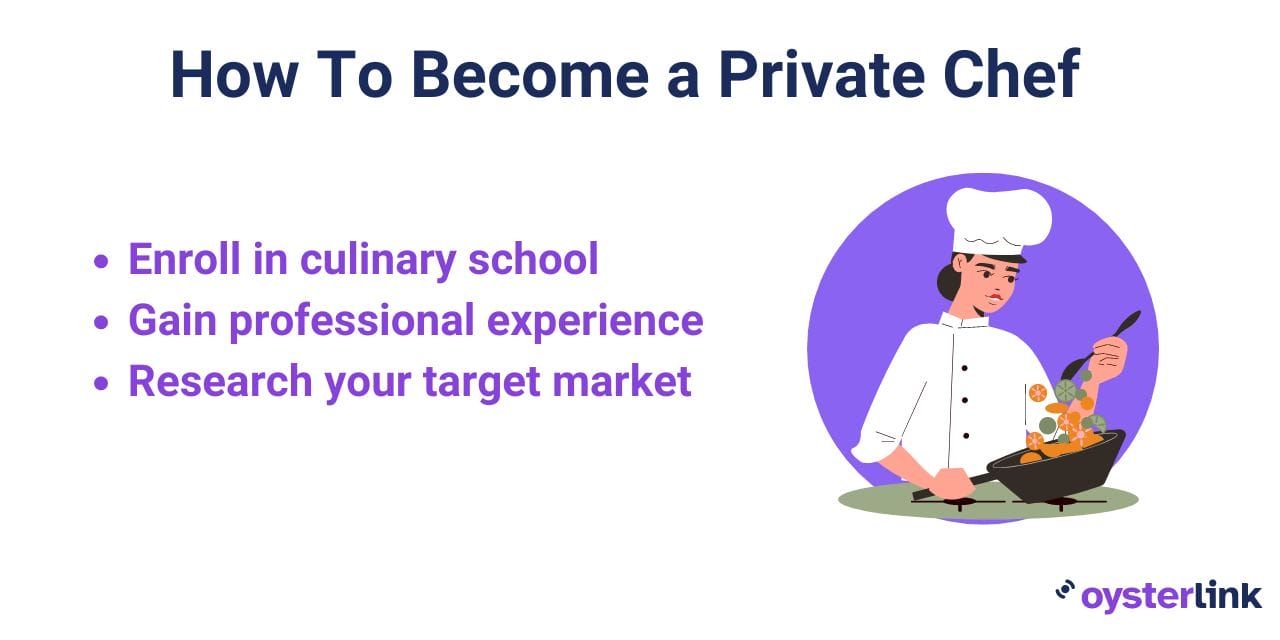Guide to a Private Chef Career
Private Chefs work with multiple clients to help them achieve their health goals. They can work independently or apply in educational institutions, senior care facilities and private companies.
Regardless of their work environment, Private Chefs need to have a keen eye for details, strong interpersonal skills and culinary expertise to be successful. In this guide, we'll share the duties and responsibilities of a Private Chef, the steps to becoming one, salary potential and career advancement opportunities.
If you're looking for information specific to Personal Chefs, note that the insights shared for Private Chefs can be used interchangeably.
What Does a Private Chef Do?
Private Chefs develop menus, prepare meals and shop for groceries. They're also expected to perform the following duties:
- Cleaning and sanitizing the kitchen area
- Bringing their own tools, including knives, baking sheets and meat thermometers
- Providing nutritional guidance
- Implementing food safety standards
- Storing and labeling cooked meals in the refrigerator

Skills You Should Have as a Private Chef
You need to have attention to detail, interpersonal skills and culinary expertise to thrive in this role.
Attention to detail
This is a soft skill that allows Private Chefs to focus, understand and remember the dietary needs of multiple clients. Attention to detail is also important in ensuring that every meal they prepare is visually appealing.
Interpersonal skills
Unlike Chefs and Cooks in hotels, restaurants and other food service establishments, Private Chefs interact more with their clients.
Learning how to communicate effectively, practice empathy and establish rapport helps provide excellent customer service. Interpersonal skills are also helpful in dealing with difficult clients and resolving conflicts, which are inevitable in this line of work. Dealing with all sorts of clients is part of the job as a Private Chef.
Culinary expertise
Knowledge of nutrition, food safety standards and different cooking methods allows Private Chefs to provide unique, safe and satisfying dining experiences for their clients.
For example, let's say you have a client who has multiple dietary restrictions such as peanut allergies but they also want a vegan diet. Taking that into consideration, you can replace peanut butter with sun butter, which is made with sunflower seeds. You can also use coconut milk instead of cow milk to bake them pastries and cook their meals.
How To Become a Private Chef
From getting a culinary degree and gaining professional experience to researching your target market, below are the steps required to become a Private Chef.
Enroll in culinary school
While most employers across the U.S. only require a high school diploma, you'd have a greater advantage when applying for jobs if you enroll in a culinary school and get a degree.
Culinary schools teach nutrition, safety standards and different cooking techniques, which are crucial to landing a job. When deciding on whether to pursue an associate's or a bachelor's degree, you need to weigh your priorities carefully. Do you have a limited budget? Choose an associate's degree. However, if you're dedicated to learning leadership skills and want an in-depth understanding of business management and budgeting, a bachelor's degree would better suit your needs.
Below we've listed the top culinary schools where you can enroll to get a bachelor's or an associate's degree:
Gain professional experience
Generally, Private Chefs are required to have at least two years of professional experience. As soon as you get a degree, you can start applying for Prep Cook jobs to learn how to set up workstations, prepare ingredients and store food properly.
Alternatively, you can ask to practice for friends and family. See what it's like working in other people's kitchens and having to prepare meals for them.
Research your target market
Do you want to work for a family, seniors or a single person?
The beauty of this career is that you can match your personal preferences in terms of culinary style and cuisine to your clients. Choosing clients based on your strengths, preferences and skills ensures that you deliver exceptional work. This leads to satisfied clients and increases the likelihood of retaining them long-term.

Private Chef Salary
Private Chefs in the U.S. earn an average base salary of $68,493 per year.
What Are the Pros and Cons of Being a Private Chef?
We've listed some of the advantages and disadvantages of pursuing this career to provide you with a better understanding of what this role requires.
Pros:
- Customer interaction: If you like socializing, you'd find this aspect rewarding as this job involves communicating regularly with clients to provide updates and get feedback regarding your work.
- Variety: Since Private Chefs work for different clients, they don't have to keep making the same meals every day unlike restaurant Chefs. They also aren't restricted to a single menu or type of cuisine.
- Flexibility: Private Chefs are the only type of Chefs who can choose who they want to work with.
Cons:
- Client retention: You need to invest a lot of time and effort in getting to know your clients, preparing high-quality meals consistently and showing reliability to ensure client retention.
- Difficult customers: Private Chefs can encounter demanding clients which requires them to be patient and use their interpersonal skills to handle situations effectively.
- Physically demanding: Any Chef job is inherently tiring. Even if you commit to only two or three working hours per client, managing multiple clients in different locations involves driving, picking up groceries, preparing meals and cleaning afterward, all of which can be exhausting.